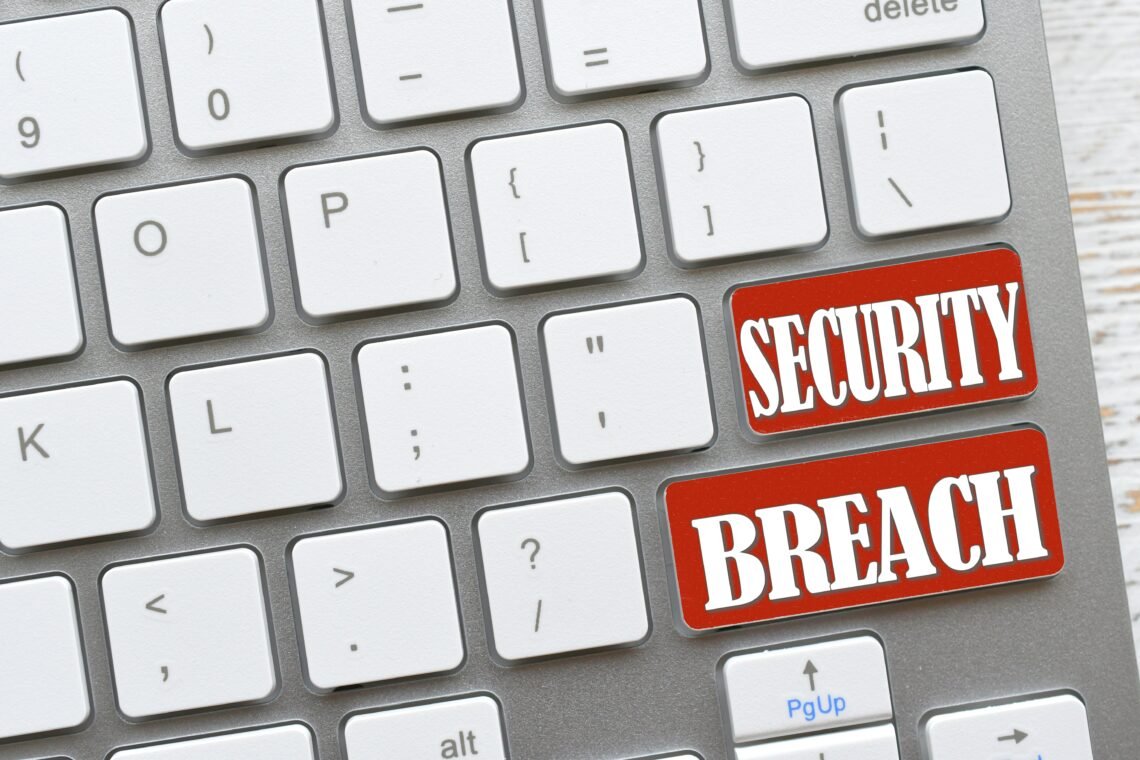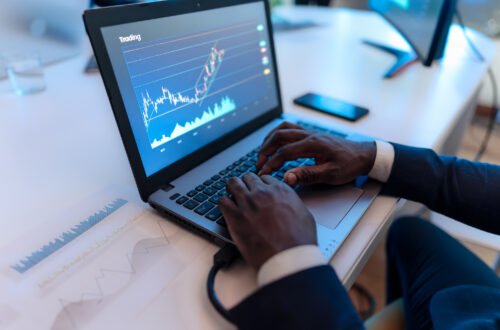
7 Essential Tips to Protect Your Financial Information Online
In today’s digital age, we rely heavily on the internet to conduct our daily activities, including managing our finances. We pay our bills, transfer funds, and even apply for loans online. However, with these conveniences come serious risks. Cybercrime has become increasingly prevalent, and financial information is a prime target for hackers. It’s more important than ever to take steps to protect your financial information online. In this post, we’ve compiled seven essential tips to help you safeguard your financial information and avoid becoming a victim of cybercrime.
1. Use a Strong Password and Two-Factor Authentication
When it comes to online security, the first line of defense is a strong password. It’s crucial to use a unique and complex password that is difficult to guess. Avoid using easily guessable passwords like “password123” or “12345678”. Instead, use a mix of uppercase and lowercase letters, numbers, and symbols to create a secure password.
Additionally, using two-factor authentication (2FA) adds an extra layer of security. With 2FA, you’ll need to provide a second piece of information, such as a fingerprint scan or a code sent to your mobile device, in addition to your password to access your accounts. This makes it much more difficult for hackers to gain access to your accounts even if they have your password.
It’s important to note that you should never use the same password across multiple accounts. If one account is compromised, all of your accounts become vulnerable. By using a unique password for each account and enabling two-factor authentication, you can significantly reduce the risk of your financial information being stolen online.
2. Keep Your Software Up to Date
One of the most critical ways to protect your financial information online is to ensure that all of your software is up to date. This includes your operating system, web browser, anti-virus software, firewalls, and any other programs you use to access the internet.
Outdated software can leave your computer or device vulnerable to security threats and leave your financial information at risk of being compromised. Regular updates to the software can help patch any security vulnerabilities and protect against the latest threats.
Most software providers release updates frequently to address any security issues, so it’s essential to keep your software up to date to ensure you’re protected against the latest threats.
You can set up automatic updates for most software to ensure you’re always running the latest version. Additionally, make sure to download software and updates directly from the official website to avoid downloading any malicious software that could put your financial information at risk.
3. Avoid Public Wi-Fi for Financial Transactions
Public Wi-Fi networks are not secure and pose a great risk to your financial information. These networks are often unencrypted, which means that hackers can easily intercept your data if they are on the same network as you. Hackers can use various techniques to intercept your data, such as man-in-the-middle attacks, packet sniffing, and session hijacking.
Therefore, it is highly recommended that you avoid using public Wi-Fi for any financial transactions, such as checking your bank account, making online purchases, or even accessing your credit card information. If you must use public Wi-Fi, make sure that you are using a virtual private network (VPN) to encrypt your data and protect it from prying eyes.
Using a VPN is an excellent way to protect your financial information from hackers. A VPN encrypts your data and creates a secure tunnel between your device and the VPN server, ensuring that your data is safe from interception. However, not all VPNs are created equal, so it’s essential to choose a reputable provider that uses strong encryption and has a strict no-logging policy.
In summary, always use a secure and trusted network when conducting any financial transactions online. Avoid using public Wi-Fi as much as possible, and if you must use it, always use a VPN to encrypt your data and keep it safe. By following these tips, you can protect your financial information and enjoy a worry-free online experience.
4. Limit the Amount of Personal Information You Share Online
The age-old adage of ‘less is more’ couldn’t be truer when it comes to sharing personal information online. Despite the increasing awareness about the importance of protecting personal information online, many people are still oversharing their personal details on social media and other online platforms.
To reduce the risk of identity theft and financial fraud, it’s important to limit the amount of personal information you share online. This includes your full name, address, phone number, date of birth, and any other sensitive information that can be used to steal your identity.
Be mindful of what you post on social media platforms, such as Facebook, Instagram, and Twitter, and adjust your privacy settings to limit who can see your posts and personal information.
Avoid sharing personal information in public forums, such as online forums or chat rooms, as these platforms are often targeted by hackers and cybercriminals to gather personal information.
Also, be cautious about filling out online surveys or entering online contests that require you to share personal information. Always check the legitimacy of the website and read the privacy policy before entering any personal information.
By limiting the amount of personal information you share online, you can significantly reduce the risk of identity theft and financial fraud, and protect your personal and financial information from falling into the wrong hands.
5. Be Careful When Clicking Links or Downloading Attachments
One of the most common ways for cybercriminals to access your personal and financial information is through phishing emails. These emails are designed to look like they come from a legitimate source, such as your bank or a well-known company, and often contain links or attachments.
It’s crucial to be careful when clicking on links or downloading attachments, especially if you weren’t expecting them. Always double-check the email address of the sender and make sure it’s legitimate before clicking on any links or downloading any attachments.
If you’re not sure whether an email is legitimate or not, don’t click on anything and don’t download any attachments. Instead, contact the sender directly through their official website or customer service number to confirm whether the email is genuine.
Another important tip is to never enter your personal or financial information on a website that you don’t trust or that doesn’t have a secure connection. Always check the URL of the website to make sure it starts with “https://”, which means it’s secure, and look for the padlock icon in the address bar.
By being cautious when clicking links or downloading attachments, you can significantly reduce your risk of falling victim to a phishing scam and keep your financial information safe and secure online.
6. Use a Virtual Private Network (VPN)
When it comes to protecting sensitive financial information online, using a Virtual Private Network (VPN) is one of the best things you can do. A VPN creates a secure, encrypted connection between your device and the internet, which makes it incredibly difficult for hackers to intercept or steal your data.
Not only does a VPN encrypt your internet traffic, but it also masks your IP address, which is a unique identifier that can be used to track your online activity. With a VPN, your online activity is hidden from prying eyes, which adds another layer of protection to your financial information.
When choosing a VPN, it’s important to look for one that has a strong privacy policy and doesn’t keep logs of your activity. Some VPNs are free, but these often have limitations and may not offer the same level of security as a paid VPN. It’s worth investing in a good quality VPN to ensure your financial information stays safe online.
7. Monitor Your Financial Accounts Regularly
One of the most important steps you can take to protect your financial information online is to monitor your accounts regularly. This means regularly checking your bank, credit card, and other financial accounts to ensure that all transactions are legitimate and authorized by you.
By monitoring your accounts regularly, you can quickly spot any suspicious activity, such as unauthorized purchases or withdrawals, and take action to prevent further fraud or theft.
Many financial institutions offer online or mobile banking services that allow you to monitor your accounts in real-time, so you can keep an eye on your finances from anywhere, at any time.
It’s also a good idea to set up alerts or notifications for your accounts, so you can receive an email or text message whenever there is activity on your account, such as a large purchase or a change in your account balance.
In addition to monitoring your financial accounts, it’s also important to review your credit report regularly to check for any unauthorized accounts or activity. By staying vigilant and monitoring your financial information regularly, you can help protect yourself from financial fraud and theft.
8. Tools and Services to Help Protect Your Financial Information
There are a variety of tools and services available to help protect your financial information online. One of the most effective tools is a virtual private network (VPN). VPNs encrypt your internet traffic and hide your IP address, making it more difficult for hackers to intercept your data. Many VPNs also offer additional features such as malware protection and ad blocking, which can further enhance your online security.
Another important tool is antivirus software. Antivirus software scans your computer for known malware and viruses and can also protect you from phishing scams and other online threats. It’s important to keep your antivirus software up to date, as new threats are constantly emerging.
Password managers are also a great way to protect your financial information online. Password managers securely store all of your login credentials and can generate strong passwords for you, reducing the risk of a hacker guessing your password. Additionally, many password managers offer two-factor authentication, which adds an extra layer of security to your accounts.
Finally, it’s important to regularly monitor your financial accounts for any suspicious activity. Most banks and credit card companies offer mobile apps or online portals that allow you to easily monitor your accounts. If you notice any unauthorized transactions, it’s important to report them to your bank or credit card company immediately. By using a combination of these tools and services, you can help protect your financial information and stay safe online.
9. Conclusion and Final Thoughts
In today’s digital age, protecting your financial information online is more important than ever. Cyber threats are becoming more sophisticated, and hackers are constantly finding new ways to steal sensitive data. By following the essential tips outlined in this post, you can help protect yourself from online fraud and keep your financial information safe.
Remember to always use strong, unique passwords and enable two-factor authentication where possible. Be cautious when sharing personal information online, and only use secure, reputable websites for online transactions. Regularly monitor your bank and credit card statements for any suspicious activity and report any unauthorized transactions to your financial institution immediately.
Lastly, it’s important to stay educated and informed about the latest cyber threats and security best practices. Keep up to date with security news and consider investing in a reputable antivirus or security software to help protect your devices.
By taking these steps, you can help ensure that your financial information remains secure online and avoid becoming a victim of cybercrime. Stay vigilant, stay safe, and protect your financial future.
10. FAQs on How to Protect Your Financial Information Online.
It’s common to have questions regarding how to protect your financial information online, especially with the rise of cyber-attacks and data breaches. Here are some frequently asked questions to help you better understand how to keep your financial information safe:
1. What are some common scams to look out for?
Phishing emails, fake websites, and fraudulent phone calls are some common scams used to obtain personal information. Always verify the source of any communication before sharing any information.
2. How can I create strong passwords?
Use a combination of uppercase and lowercase letters, numbers, and symbols. Avoid using easily guessable information such as your name, birthdate, or common phrases.
3. Is it safe to use public Wi-Fi?
No, public Wi-Fi is not safe for financial transactions or any type of sensitive information. Use a virtual private network (VPN) or wait until you are on a secure network before conducting any financial transactions.
4. How can I ensure my online shopping transactions are secure?
Look for websites that use secure sockets layer (SSL) encryption and only make purchases from reputable websites. Use a credit card instead of a debit card as it offers more protection against fraud.
5. What should I do if I suspect my financial information has been compromised?
Contact your financial institution immediately and monitor your accounts for any unauthorized transactions. Consider putting a fraud alert on your credit report.
By following these tips and staying vigilant, you can protect your financial information online and avoid becoming a victim of identity theft or financial fraud.
We hope you found our article on how to protect your financial information online informative and helpful. With the rise of online fraud and identity theft, protecting your financial information is more important than ever. The tips we provided in this article are essential to keep your financial information secure and prevent any unauthorised access to your accounts. Remember to stay vigilant and keep your online security measures up to date to avoid any potential problems. Stay safe and secure in the digital world!


